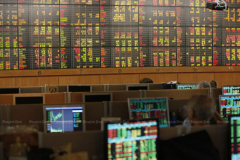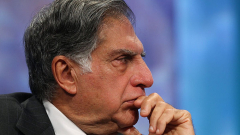Asian shares retreat as US rate-cut prospects dim
PUBLISHED : 21 Dec 2024 at 08: 35
Listen to this article
Investors monitor share prices at Asia Plus Securities on Sathon Road, Bangkok. (File photo)
RECAP: Asian equities declined on Friday and the dollar traded near a two-year high as investors continued to fret about the likelihood of fewer US interest rate cuts in the coming year.
The Thai index fell below 1,400 points on Tuesday and remained there all week, pressured by selling of stocks in the CP Group and a shift in market expectations of US rate cuts.
The SET index moved in a range of 1,361.34 and 1,424.68 points this week, before closing on Friday at 1,365.07, down 4.7% from the previous week, with daily turnover averaging 54.16 billion baht.
Retail investors were net buyers of 10.7 billion baht. Institutional investors were net sellers of 7.7 billion baht, followed by foreign investors at 2.1 billion and brokerage firms at 931.3 million.
NEWSMAKERS: The US Federal Reserve cut its key interest rate on Wednesday by a quarter-point as expected but also signalled it expects to reduce rates more slowly next year than previously envisioned, mostly because of still-high inflation. Latest projections indicate rates could fall by just 50 basis points in 2025.
The US economy grew faster than previously estimated in the third quarter, driven by robust consumer spending. GDP increased at an upwardly revised 3.1% annualised rate.
The Bank of England on Thursday left its policy rate unchanged at 4.75% as expected as inflation rose to an eight-month high of 2.6%, adding to fears that the economy will enter the new year burdened by stagflation.
The yen plunged to a five-month low at 155 to the US dollar on Thursday after Bank of Japan kept its policy rate unchanged at 0.25% and governor Kazuo Ueda was non-committal on the timing of the next rate hike.
China left its benchmark lending rates unchanged on Friday, matching market expectations, as falling yields, shrinking net interest margins and a weakening yuan create limits for monetary easing.
New Zealand tipped into recession in the third quarter, with sentiment weighed down by high prices, elevated borrowing costs and a housing crisis. GDP fell by 1%, the second quarterly contraction in a row.
US President-elect Donald Trump on Thursday threatened the European Union with tariffs if its member countries don’t buy m
Read More





